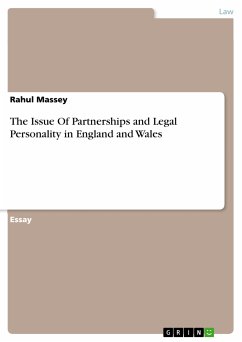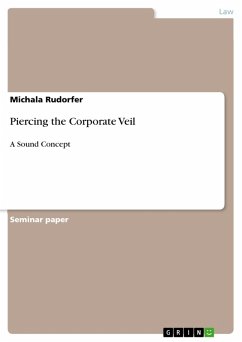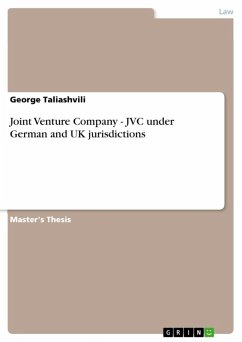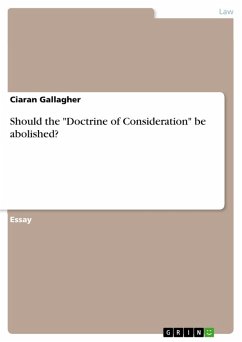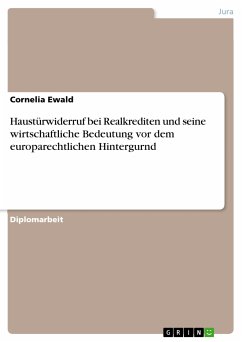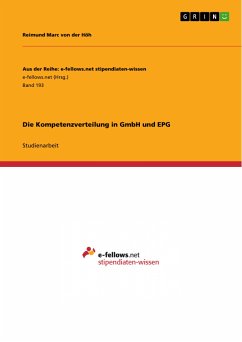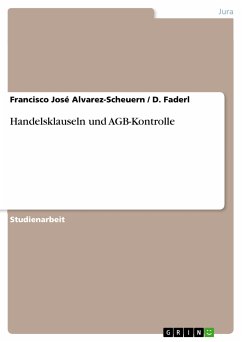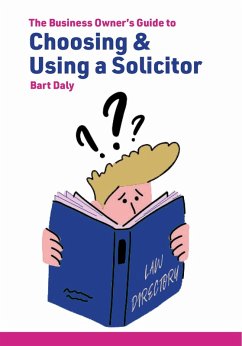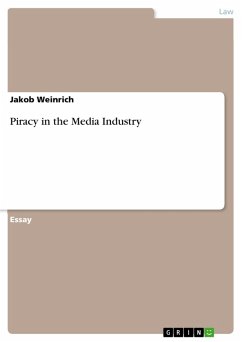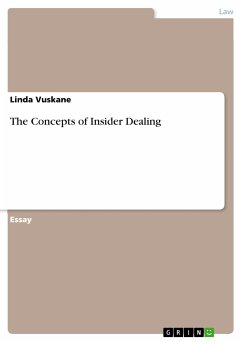
The Concepts of Insider Dealing (eBook, ePUB)
Sofort per Download lieferbar
Statt: 15,95 €**
5,99 €
inkl. MwSt. und vom Verlag festgesetzt.
**Preis der gedruckten Ausgabe (Broschiertes Buch)
Alle Infos zum eBook verschenkenWeitere Ausgaben:

PAYBACK Punkte
0 °P sammeln!
Essay from the year 2010 in the subject Law - Civil / Private, Trade, Anti Trust Law, Business Law, grade: 67, , course: Company Law, language: English, abstract: The following paper investigates the concepts of insider dealing. While the first part offers an overview of the relevant legislation, the second part aims to answer the question as to whether insider trading should be prohibited by legislation. Insider dealing refers to the use of non-public and price-sensitive information for the purpose of gaining an unfair advantage and involves trading with company shares or other securities in ...
Essay from the year 2010 in the subject Law - Civil / Private, Trade, Anti Trust Law, Business Law, grade: 67, , course: Company Law, language: English, abstract: The following paper investigates the concepts of insider dealing. While the first part offers an overview of the relevant legislation, the second part aims to answer the question as to whether insider trading should be prohibited by legislation. Insider dealing refers to the use of non-public and price-sensitive information for the purpose of gaining an unfair advantage and involves trading with company shares or other securities in a public financial market. Such conduct is both a criminal offence and a regulatory infringement under the civil code. There are various theories dealing with insider trading that offers arguments for and against the prohibition of insider trading. The misappropriation theory, the unfairness approach and the idea that insider dealing will negatively affect market confidence are all considered to be distinct reasons for regulating insider dealing. On the other hand, opponents argue that legalization of insider dealing would lead to increased market efficiency, fairer share pricing and fraud prevention. Despite the high costs required for prevention of insider dealing and the fact that very few if any companies have ever sued its officers for inside trading, it is widely regarded by the governments as being immoral and damaging for the markets and is therefore prohibited. The offences can be dealt with either civil or criminal regime, with the latter being far more difficult to apply in practice and thus less effective.
Dieser Download kann aus rechtlichen Gründen nur mit Rechnungsadresse in A, B, BG, CY, CZ, D, DK, EW, E, FIN, F, GR, HR, H, IRL, I, LT, L, LR, M, NL, PL, P, R, S, SLO, SK ausgeliefert werden.




